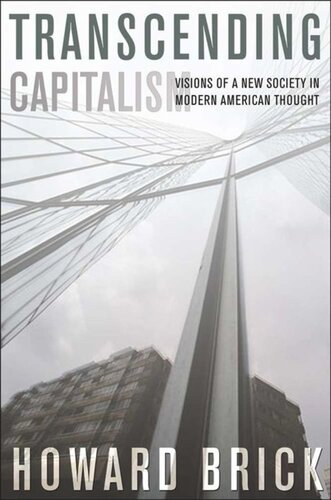

Most ebook files are in PDF format, so you can easily read them using various software such as Foxit Reader or directly on the Google Chrome browser.
Some ebook files are released by publishers in other formats such as .awz, .mobi, .epub, .fb2, etc. You may need to install specific software to read these formats on mobile/PC, such as Calibre.
Please read the tutorial at this link: https://ebookbell.com/faq
We offer FREE conversion to the popular formats you request; however, this may take some time. Therefore, right after payment, please email us, and we will try to provide the service as quickly as possible.
For some exceptional file formats or broken links (if any), please refrain from opening any disputes. Instead, email us first, and we will try to assist within a maximum of 6 hours.
EbookBell Team

4.7
96 reviewsTranscending Capitalism explains why many influential midcentury American social theorists came to believe it was no longer meaningful to describe modern Western society as "capitalist," but instead preferred alternative terms such as "postcapitalist," "postindustrial," or "technological." Considering the discussion today of capitalism and its global triumph, it is important to understand why a prior generation of social theorists imagined the future of advanced societies not in a fixed capitalist form but in some course of development leading beyond capitalism.Howard Brick locates this postcapitalist vision within a long history of social theory and ideology. He challenges the common view that American thought and culture utterly succumbed in the 1940s to a conservative cold war consensus that put aside the reform ideology and social theory of the early twentieth century. Rather, expectations of the shift to a new social economy persisted and cannot be disregarded as one of the elements contributing to the revival of dissenting thought and practice in the 1960s.Rooted in a politics of social liberalism, this vision held influence for roughly a half century, from its interwar origins until the right turn in American political culture during the 1970s and 1980s. In offering a historically based understanding of American postcapitalist thought, Brick also presents some current possibilities for reinvigorating critical social thought that explores transitional developments beyond capitalism.